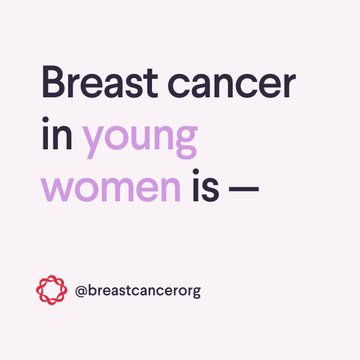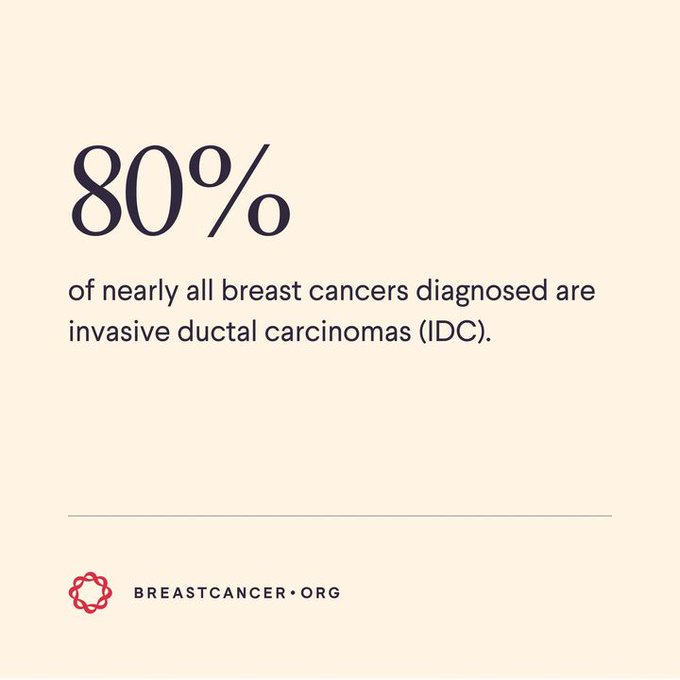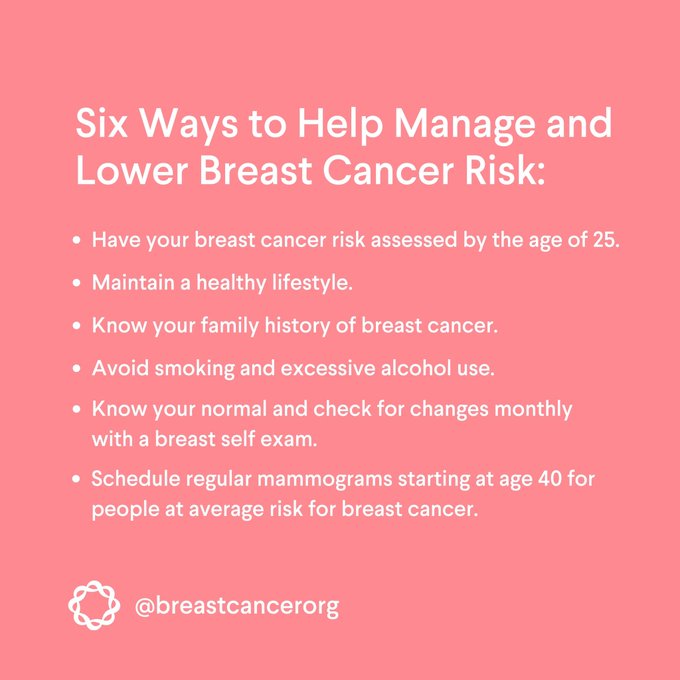“As with many other diseases, your risk of breast cancer
goes up as you get older. About two out of three
invasive breast cancers are found in women 55 or older”.1
Umbrella
What may the Breast Cancer Umbrella include?
Depending on the Source (DotS) this Umbrella may include:
- Breast Cancer
- Cancer of the Breast
- Ductal Carcinoma
Definition
What is breast cancer?
DotS the definition of breast cancer may vary. The (United States) National Cancer Institute’s (NCI) definition:
Cancer that forms in tissues of the breast”.2
The (United States) Breastcancer.org’s definition is:
Types
What are common types of breast cancer?
The NCI explain:
Common or Not
How common is breast cancer?
In the United States according to the (United States) Centers for Disease Control and Prevention (CDC):
In the United Kingdom (UK) according to the (United Kingdom) NHS:
Risk
How may breast cancer risk be lowered?
In Breast Cancer Risk Factors Breastcancer.org elaborate on known and emerging breast cancer risk factors explaining:
By choosing the healthiest lifestyle options possible, you can empower yourself and make sure your breast cancer risk is as low as possible”.7
In Breast Cancer Treatment (PDQ)–Patient Version: General Information About Breast Cancer — A Family History of Breast Cancer and Other Factors Increase the Risk of Breast Cancer the NCI elaborate on these and more risk factors for breast cancer:
- A personal history of invasive breast cancer, ductal carcinoma in situ (DCIS), or lobular carcinoma in situ (LCIS)
- A personal history of benign (noncancer) breast disease
- A family history of breast cancer in a first-degree relative (mother, daughter, or sister)
- Inherited changes in the BRCA1 or BRCA2 genes or in other genes that increase the risk of breast cancer
- Breast tissue that is dense on a mammogram
- Exposure of breast tissue to estrogen made by the body. This may be caused by:
- Menstruating at an early age
- Older age at first birth or never having given birth
- Starting menopause at a later age
- Taking hormones such as estrogen combined with progestin for symptoms of menopause
- Treatment with radiation therapy to the breast/chest
- Drinking alcohol
- Obesity.
Older age is the main risk factor for most cancers. The chance of getting cancer increases as you get older”.8
Age
In women, is age a risk factor for breast cancer?
In Know Your Risk: Breast Cancer Risk Factors – Age Breastcancer.org also note:
 “As with many other diseases, your risk of breast cancer goes up as you get older. About two out of three invasive breast cancers are found in women 55 or older”.9
“As with many other diseases, your risk of breast cancer goes up as you get older. About two out of three invasive breast cancers are found in women 55 or older”.9Hormone Therapy
What is the association between hormone therapy (HT) and breast cancer risk?
On page three in the Joint Position Statement By the British Menopause Society, Royal College of Obstetricians and Gynaecologists and Society for Endocrinology on Best Practice Recommendations for the Care of Women Experiencing the Menopause, first published online 10 June 2022, one of the recommendations is:
Alcohol
Is there an association between alcohol and breast cancer risk?
In Alcohol and Breast Cancer Risk: How Much Is Safe To Drink? Breastcancer.org elaborate on:
If you want to do everything you can to lower your breast cancer risk, limiting how much alcohol you drink makes sense. You may choose to stop drinking alcohol completely. But if you plan to continue drinking, try to have as few alcoholic drinks per week as possible”.11
Men
Can men get breast cancer?
Yes. In Male Breast Cancer Treatment (PDQ)–Patient Version: Overview – General Information About Male Breast Cancer the NCI note in the U.S.:
Breast cancer may occur in men. Breast cancer may occur in men at any age, but it usually occurs in men between 60 and 70 years of age. Male breast cancer makes up less than 1% of all cases of breast cancer”.12
Health Care Provider
What if I notice changes with my breasts?
If you notice any changes with your breasts, it may be in your best interest to choose to talk to you health care provider about this as soon as possible.
Health Topics A-Z
Where may I find Health Topics A-Z related to Breast Cancer?
In Health Topics A-Z you may find:
Links
Where may I find Links related to Breast Cancer?
Your Country may have Links similar to:
Links
This Links List to third party websites is neither comprehensive nor exhaustive. Inclusion on this Links List does not imply endorsement or recommendation. Non-inclusion on this Links List does not imply non-endorsement or non-recommendation. Third party websites are not under the control of Meno Martha International Menopause Directory. Third party websites may contain explicit medical images and/or sexual references. Please read Meno Martha International Menopause Directory’s Links Policy before proceeding to a Link. Please contact Webmaster if you experience a problem with a Link.New or Updated
- Alcohol and Breast Cancer Risk [01 October 2025]
- Breast Cancer [14 August 2025]
- Breast Cancer Risk Factors [09 October 2025]
- Breast Cancer Survivors Find Relief for Debilitating Menopause Symptom [22 October 2025]
- Mayo Clinic Minute: Radiation Therapy for Patients With Breast Cancer [21 October 2025] [+ Video Courtesy: Mayo Clinic News Network]
- Mayo Clinic Q and A: How To Decide Which Breast Cancer Surgery Is Right for You [09 October 2025]
- 11 Things To Know About Supplements and Cannabis for Breast Cancer
- About Breast Cancer
- About Dense Breasts
- Alcohol and Breast Cancer Risk
- Assessing Breast Cancer Risk
- BRCA Gene Test for Breast and Ovarian Cancer Risk
- Bcna.org.au [Breast Cancer Network, Australia]
- Breast Cancer
- Breast Cancer
- Breast Cancer
- Breast Cancer
- Breast Cancer
- Breast Cancer
- Breast Cancer
- Breast Cancer
- Breast Cancer Awareness
- Breast Cancer Awareness Month [October, United States]
- Breast Cancer Can Be Genetic: Here’s What To Know
- Breast Cancer Myths Versus Facts
- Breast Cancer Prevention (PDQ)–Patient Version
- Breast Cancer Prevention and Risk
- Breast Cancer Prevention: How To Reduce Your Risk
- Breast Cancer Risk Factors
- Breast Cancer Risk Factors
- Breast Cancer Signs and Symptoms
- Breast Cancer Survivors Find Relief for Debilitating Menopause Symptom
- Breast Cancer: Breast Cancer Basics
- Breast Cancer: What Causes Breast Cancer
- Breast Cancer–Patient Version
- Breast Cysts
- Breast Lump: Early Evaluation Is Essential
- Breast Pain
- Breast Pain or Breast Cancer? Dr Liz O’Riordan
- Breast Reconstruction After Mastectomy
- Breast Reconstruction Using Your Own Tissue
- Breast and Ovarian Cancers and Family History Risk Categories
- Breastcancer.org [United States]
- Breastcancercare.org.uk [Breast Cancer Care, United Kingdom]
- Breastcancernow.org [Breast Cancer Now, United Kingdom]
- Breastcanceruk.org.uk [Breast Cancer, United Kingdom]
- Bring Your Brave Campaign
- Can Exercise Reduce Your Risk of Breast Cancer? [+ Video]
- Can Soy Cause Breast Cancer?
- Caring for Someone With Breast Cancer
- Consumer Video and Podcast Series: 2023 Consumer Videos and Podcasts – Lifestyle Modification and Prevention of Breast Cancer
- Demystifying Triple-Negative Breast Cancer: Understanding the Basics
- Dense Breasts
- Drinking Alcohol
- FAQs
- Familial Breast Cancer
- Family History
- Genetic Testing and Family Relationships
- Genetic Testing for Breast Cancer
- Glossary
- HER2-Positive Breast Cancer: What Is It?
- Hormone (Endocrine) Therapy
- How Diet Impacts Breast Cancer Risk and Outcomes
- Information for LGBTIQ+ People Diagnosed With Breast Cancer
- Is There Any Connection Between Breast Implants and Cancer? And If So, How Serious Is the Risk?
- Jewish Women and BRCA Gene Mutations
- Know Your Breast Cancer Risk
- Learn About Breast Cancer
- Learn How Breast Density Impacts Cancer Risk With Dr. Liz O’Riordan – Cancer || Dr Liz O’Riordan
- Learn More About Mammography During Breast Cancer Awareness Month
- Living With Metastatic Breast Cancer
- Luminal B Breast Cancer
- Mammograms
- Mayo Clinic Minute: Does Soy Increase Breast Cancer Risk? [+ Video Courtesy: Mayo Clinic News Network]
- Mayo Clinic Minute: Radiation Therapy for Patients With Breast Cancer [+ Video Courtesy: Mayo Clinic News Network]
- Mayo Clinic Minute: Treating Breast Cancer Through Surgery [+ Video Courtesy: Mayo Clinic News Network]
- Mayo Clinic Minute: What Does A Diagnosis of Dense Breasts Mean? [+ Video Courtesy: Mayo Clinic News Network]
- Mayo Clinic Minute: What Is A Breast Medicine Specialist? [+ Video Courtesy: Mayo Clinic News Network]
- Mayo Clinic Q and A: How Surgery Can Reduce Breast Cancer Risk
- Mayo Clinic Q and A: How To Decide Which Breast Cancer Surgery Is Right for You
- Mayo Clinic Q and A: Options for Breast Reconstruction
- Mediterranean Diet May Help Lower Breast Cancer Risk, Especially Postmenopause
- Menopause Care After Breast Cancer | Dr Louise Newson
- Menopause Treatment Options After Cancer
- Menopause and Breast Cancer
- Metastatic Breast Cancer
- National Center for Complementary and Integrative Health: Cancer and Complimentary Health Approaches: What You Need To Know
- National Center for Complementary and Integrative Health: Green Tea
- Nationalbreastcancer.org [National Breast Cancer Foundation, United States]
- Nbcf.org.au [National Breast Cancer Foundation, Australia]
- New Diagnosis of Early Breast Cancer
- Science In 5: Episode #127 – Breast Cancer: Take Charge of Your Health
- Signs and Symptoms of Breast Cancer
- Signs and Symptoms of Breast Cancer
- Special Series: Young With Breast Cancer

- Surgical Innovations Help Personalize Breast Cancer Treatment, Improve Quality of Life
- Survey Shows Need for More Education About Nutrition’s Impact on Breast Cancer Risk
- Symptoms of Breast Cancer In Women
- The 4 Types of Systemic Therapy for Breast Cancer
- Top 10 Questions About Breast Cancer Answered
- Topical Vaginal Oestrogen for Breast Cancer Patients
- Types of Breast Cancer

- Types of Complementary Therapy
- Understanding Triple-Negative Breast Cancer and Its Treatment
- What Is Breast Cancer?

Sources
Where may I find the Sources quoted?
You may find the Sources quoted at:
Sources
- Know Your Risk: Breast Cancer Risk Factors – Age. Last Updated: 23 February 2023. Breastcancer.org https://www.breastcancer.org/risk/risk-factors/age Accessed: 23 October 2025
- NCI Dictionary of Cancer Terms: B – Breast Cancer. National Cancer Institute https://www.cancer.gov/publications/dictionaries/cancer-terms/expand/B Accessed: 23 October 2025
- What Is Breast Cancer? How Does Breast Cancer Start? Last Updated: 08 August 2025. Breastcancer.org https://www.breastcancer.org/about-breast-cancer Accessed: 23 October 2025
- NCI Dictionary of Cancer Terms: B – Breast Cancer. National Cancer Institute https://www.cancer.gov/publications/dictionaries/cancer-terms/expand/B Accessed: 23 October 2025
- Breast Cancer: Breast Cancer Statistics – What To Know. 10 June 2025. Centers for Disease Control and Prevention https://www.cdc.gov/breast-cancer/statistics/index.html Accessed: 23 October 2025
- Breast Cancer In Women. NHS https://www.nhs.uk/conditions/breast-cancer-in-women/ Accessed: 23 October 2025
- Breast Cancer Risk Factors. Last Updated: 09 October 2025. Breastcancer.org https://www.breastcancer.org/risk/factors Accessed: 23 October 2025
- Breast Cancer Treatment (PDQ)–Patient Version: General Information About Breast Cancer – A Family History of Breast Cancer and Other Factors Increase the Risk of Breast Cancer. Updated: 11 December 2024. National Cancer Institute https://www.cancer.gov/types/breast/patient/breast-treatment-pdq Accessed: 23 October 2025
- Know Your Risk: Breast Cancer Risk Factors – Age. Last Updated: 23 February 2023. Breastcancer.org https://www.breastcancer.org/risk/risk-factors/age Accessed: 23 October 2025
- Hamoda, H., Mukherjee, A., Morris, E., Baldeweg, S. E., Jayasena, C. N., Briggs, P., Moger, S. Optimising the Menopause Transition: Joint Position Statement By the British Menopause Society, Royal College of Obstetricians and Gynaecologists and Society for Endocrinology on Best Practice Recommendations for the Care of Women Experiencing the Menopause. First Published Online 10 June 2022:1 https://journals.sagepub.com/doi/10.1177/20533691221104882 Accessed: 23 October 2025
- Alcohol and Breast Cancer Risk. Last Updated: 01 October 2025. Breastcancer.org https://www.breastcancer.org/risk/risk-factors/drinking-alcohol Accessed: 23 October 2025
- Male Breast Cancer Treatment (PDQ)–Patient Version: Overview – General Information About Male Breast Cancer. Updated: 23 August 2024. National Cancer Institute https://www.cancer.gov/types/breast/patient/male-breast-treatment-pdq#section/_69 Accessed: 23 October 2025







